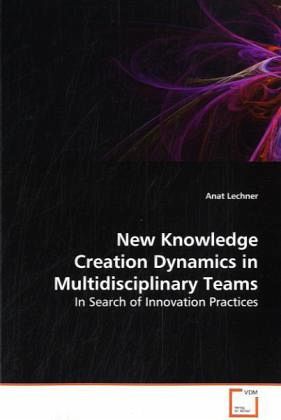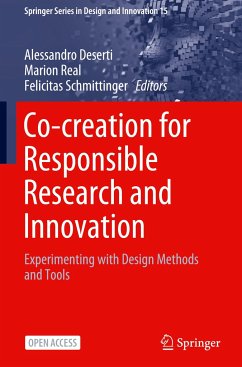
New Knowledge Creation Dynamics in Multidisciplinary Teams
In Search of Innovation Practices
Versandkostenfrei!
Versandfertig in 6-10 Tagen
52,99 €
inkl. MwSt.

PAYBACK Punkte
26 °P sammeln!
The growing necessity to introduce innovations tomarkets has made firms more conscious of theirconception and consumption of knowledge as themeta-resource with which they compete. Consequently,the use of multidisciplinary teams, where knowledgeresources are brought together from differentdisciplines has gained tremendous popularity. Yetthese teams have often fallen short of realizingtheir innovation-creation potential due to unique andunusual team functioning problems. This researchuncovers and analyzes concurrent tensions ofcommitment, leadership and knowledge sharing thatemerge in multidisci...
The growing necessity to introduce innovations to
markets has made firms more conscious of their
conception and consumption of knowledge as the
meta-resource with which they compete. Consequently,
the use of multidisciplinary teams, where knowledge
resources are brought together from different
disciplines has gained tremendous popularity. Yet
these teams have often fallen short of realizing
their innovation-creation potential due to unique and
unusual team functioning problems. This research
uncovers and analyzes concurrent tensions of
commitment, leadership and knowledge sharing that
emerge in multidisciplinary teams due to their
heterogeneous composition and often derail their
creative knowledge development performance. As found,
tension management mechanisms including boundary
management, distributed leadership and helping-based
collaboration enable multidisciplinary teams
realizing their potential to innovate.
markets has made firms more conscious of their
conception and consumption of knowledge as the
meta-resource with which they compete. Consequently,
the use of multidisciplinary teams, where knowledge
resources are brought together from different
disciplines has gained tremendous popularity. Yet
these teams have often fallen short of realizing
their innovation-creation potential due to unique and
unusual team functioning problems. This research
uncovers and analyzes concurrent tensions of
commitment, leadership and knowledge sharing that
emerge in multidisciplinary teams due to their
heterogeneous composition and often derail their
creative knowledge development performance. As found,
tension management mechanisms including boundary
management, distributed leadership and helping-based
collaboration enable multidisciplinary teams
realizing their potential to innovate.












